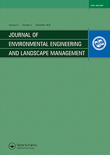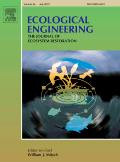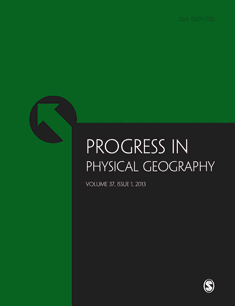
Journal of Environmental Engineering and Landscape Management
Scope & Guideline
Exploring the Intersection of Nature and Engineering
Introduction
Aims and Scopes
- Environmental Engineering Solutions:
The journal publishes research on engineering solutions for environmental challenges, including water quality management, waste treatment, and pollution control. - Landscape Management and Design:
It emphasizes studies related to landscape management, including urban greening, green roofs, and the restoration of degraded landscapes. - Sustainability and Ecosystem Services:
Research on sustainable practices that enhance ecosystem services, biodiversity conservation, and the socio-economic benefits of landscapes is a core focus. - Technological Innovations:
The journal supports innovative methodologies, including the use of machine learning and GIS technologies, to advance environmental modeling and planning. - Impact of Climate Change:
It addresses the effects of climate change on urban environments and landscapes, providing insights into adaptation and mitigation strategies.
Trending and Emerging
- Green Infrastructure and Urban Resilience:
Research on green infrastructure, such as green roofs and urban forests, is gaining prominence as cities seek to enhance resilience against climate change and improve urban livability. - Machine Learning and Data Analytics:
There is an increasing trend towards utilizing machine learning and data analytics for predictive modeling and environmental monitoring, indicating a shift towards data-driven decision-making. - Mental Health and Environmental Interaction:
Studies exploring the relationship between green spaces and mental well-being have surged, highlighting the importance of nature in urban settings, especially post-pandemic. - Ecosystem Restoration and Biodiversity:
Research focusing on ecosystem restoration practices and biodiversity enhancements is on the rise, reflecting global priorities for conservation and sustainable development. - Climate Change Adaptation Strategies:
The journal is increasingly publishing works that address adaptation strategies to mitigate the impacts of climate change on various ecosystems and urban landscapes.
Declining or Waning
- Traditional Waste Management Practices:
Research focusing on conventional waste management techniques has decreased as newer, more sustainable approaches gain traction, such as recycling and waste-to-energy technologies. - Single-Factor Environmental Studies:
There is a noticeable reduction in studies that examine single factors in environmental assessments, with a growing preference for integrated approaches that consider multiple variables. - Static Landscape Models:
The use of static models for landscape analysis is declining in favor of dynamic modeling techniques that incorporate temporal changes and real-time data. - Overemphasis on Local Case Studies:
While local case studies were once prevalent, there is a shift towards broader, comparative studies that examine environmental issues across different regions and contexts.
Similar Journals

International Journal of Environmental Science and Technology
Leading the charge in sustainable technology research.International Journal of Environmental Science and Technology, published by SPRINGER, stands as a premier platform for the dissemination of cutting-edge research in the fields of environmental science, technology, and engineering. With an impressive scope spanning from 2005 to 2024, this journal serves as a vital resource for academic and professional communities engaged in tackling pressing environmental challenges. It boasts a strong reputation, evidenced by its Q1 ranking in Agricultural and Biological Sciences and solid placements in Environmental Chemistry and Engineering. Researchers searching for high-impact studies will find the journal's contributions significant, as reflected in its rankings within Scopus: 34th percentile in Agricultural and Biological Sciences and notable standings in Environmental Engineering and Chemistry. Although the journal is not currently an Open Access resource, it maintains a commitment to academic rigor and innovation, making it indispensable for those devoted to advancing knowledge in environmental sustainability and technology.

Water Conservation Science and Engineering
Fostering Collaboration for a Sustainable Water FutureWater Conservation Science and Engineering, published by SPRINGERNATURE, is a vital academic journal dedicated to advancing the fields of environmental engineering, ocean engineering, waste management, and water science and technology. Since its inception in 2016, the journal has quickly established itself within the academic community, achieving a commendable Q3 ranking across multiple categories in 2023. With an ISSN of 2366-3340 and an E-ISSN of 2364-5687, it is accessible to a global readership eager to explore the latest research and innovations in water conservation and sustainable practices. Although currently not open access, the journal is committed to publishing high-quality scholarly articles that provide insights into effective water management strategies, innovative engineering solutions, and the critical importance of preserving our water resources. Based in Singapore, Water Conservation Science and Engineering aims to foster interdisciplinary collaboration among researchers, professionals, and students, making it an essential resource for anyone passionate about environmental sustainability and preservation.

Advances in Environmental Research-An International Journal
Championing Insights for Global SustainabilityAdvances in Environmental Research is an international journal published by TECHNO-PRESS, dedicated to advancing our understanding of environmental science and sustainability. Operating with an ISSN of 2234-1722 and an E-ISSN of 2234-1730, this journal serves as a premier outlet for researchers, professionals, and students aiming to share pioneering research findings, case studies, and reviews that address contemporary environmental challenges. The journal aims to provide a platform for scholarly discussion on a wide range of topics, including pollution control, resource management, and ecological conservation. Though currently classified as a non-open access journal, it remains accessible through various institutional subscriptions, allowing a broad audience to engage with its content. Committed to fostering academic collaboration and innovation, Advances in Environmental Research plays a crucial role in informing policymakers and the scientific community about emerging trends and solutions in environmental studies, making it an essential resource for those dedicated to creating a sustainable future.

ECOLOGICAL ENGINEERING
Exploring the intersection of nature and engineering.ECOLOGICAL ENGINEERING, published by Elsevier in the Netherlands, is a leading journal dedicated to advancing the field of environmental engineering and sustainable development. With an impressive impact factor and recognized as Q1 in multiple categories including Environmental Engineering, Management, Monitoring, Policy and Law, as well as Nature and Landscape Conservation, this journal stands at the forefront of environmental science research. It ranks among the top publications in its fields according to Scopus, reinforcing its significance with a notable position within the 90th percentile for Nature and Landscape Conservation. ECOLOGICAL ENGINEERING encourages open discourse and dissemination of innovative practices aimed at addressing contemporary ecological challenges, making it an essential resource for researchers, professionals, and students committed to sustainable practices and environmental stewardship. The journal’s comprehensive scope includes ecological restoration, habitat management, and policy implementation, ensuring a broad spectrum of relevant topics for its readership.

Progress in Physical Geography-Earth and Environment
Advancing knowledge in Earth and Environmental Sciences.Progress in Physical Geography-Earth and Environment is a premier academic journal published by SAGE Publications Ltd, renowned for its contributions to the fields of Earth and Planetary Sciences and Geography. With a distinguished history spanning from 1977 to 2024, this journal maintains a robust Q1 classification in both Earth and Planetary Sciences and Geography, Planning and Development, reflecting its high impact and rigorous scholarly standards. As evidenced by its Scopus rankings, it stands at the forefront of research, positioned in the 89th percentile among leading journals. Progress in Physical Geography aims to facilitate the exchange of innovative research, insights, and methodologies, making it an essential resource for researchers, professionals, and students dedicated to understanding and shaping the natural environment. While currently not designated as an Open Access journal, the wide accessibility of its content, combined with its significant impact factor, underscores its importance within the academic community seeking to advance knowledge and application in geography and environmental sciences.

Environments is a distinguished international journal published by MDPI, focusing on the interdisciplinary realm of ecology, environmental sciences, and sustainability. Established in 2014, this Open Access journal allows unrestricted access to its high-quality research articles, making it an essential resource for researchers, professionals, and students alike. With its impact factor and Scopus ranks reflecting its academic significance—including a Q1 ranking in Ecology, Evolution, Behavior and Systematics—Environments serves as a critical platform for the dissemination of innovative research and practical applications in addressing pressing environmental challenges. The journal's commitment to promoting sustainability and renewable energy initiatives aligns with global efforts to foster a better understanding of our ecological systems and enhances its relevance in today’s rapidly evolving environmental landscape. The journal is based in Switzerland and encompasses a broad scope dedicated to advancing scholarly dialogue in environments related to ecological and environmental science.

Blue-Green Systems
Exploring Synergies Between Land and WaterBlue-Green Systems is an esteemed journal in the realm of environmental science, published by IWA PUBLISHING. With an ISSN of 2617-4782, this journal serves as a vital platform for disseminating cutting-edge research on the integration of blue (water-related) and green (land-related) systems, focusing on sustainable solutions to pressing environmental challenges. Since its inception in 2019, the journal has rapidly established itself as a leader in the field, ranked in the Q1 category across three domains: Environmental Science (miscellaneous), Management, Monitoring, Policy and Law, and Water Science and Technology, with impressive positions of #25/261 and #22/219 in their respective Scopus Ranks. This remarkable visibility and high impact factor reflect its commitment to advancing knowledge in sustainable management practices and policies. Researchers, professionals, and students alike can access the journal's rich content to enhance their understanding of the integration between ecological and hydrological systems, pivotal for driving innovative strategies in environmental management. Based in the United Kingdom, Blue-Green Systems contributes significantly to the global discourse on environmental sustainability and innovation, making it an essential resource for those aiming to influence future policies and practices.

Frontiers of Environmental Science & Engineering
Connecting research and practice to shape environmental progress.Frontiers of Environmental Science & Engineering is a premier journal published by HIGHER EDUCATION PRESS that stands at the forefront of interdisciplinary research in environmental science and engineering. Established in 2013 and converging its scope through 2024, this journal has swiftly ascended to a notable Q1 category in the Environmental Science (Miscellaneous) segment, highlighting its remarkable impact and relevance. With a Scopus ranking of 27 out of 233 in its field, placing it within the top 88th percentile, it serves as a crucial platform for disseminating cutting-edge research, innovative methodologies, and pressing environmental concerns. Researchers, professionals, and students alike will find valuable insights and opportunities for collaboration within its pages. While the journal operates under a subscription model, its commitment to advancing the field makes it an essential resource for those dedicated to addressing the world's environmental challenges, fostering sustainable practices, and pioneering engineering solutions.

Euro-Mediterranean Journal for Environmental Integration
Exploring Innovative Approaches to Environmental IntegrationThe Euro-Mediterranean Journal for Environmental Integration, published by SPRINGER HEIDELBERG, serves as a pivotal platform for interdisciplinary research in the realm of environmental science, particularly focused on the unique ecological and socio-economic context of the Euro-Mediterranean region. With its ISSN 2365-6433 and E-ISSN 2365-7448, this journal aims to foster a collaborative approach to environmental challenges, integrating insights from various fields such as ecology, geography, and sustainable development. Since its inception in 2016, it has made significant strides, achieving a Q3 ranking in Environmental Science and maintaining a notable position within the Scopus rankings, sitting at #102 out of 233 in the general environmental science category, which reflects its growing influence in academic discourse. The journal is committed to open dialogue among researchers, professionals, and students aimed at advancing knowledge and promoting innovative solutions to pressing environmental issues. Access to its comprehensive articles and findings will be key to contributing to a more sustainable future.

Hydrologie und Wasserbewirtschaftung
Championing research for responsible water stewardship.Hydrologie und Wasserbewirtschaftung, published by the BUNDESANSTALT GEWASSERKUNDE-BFG, stands as a vital open access journal in the field of hydrology and water management since its inception in 1999. Based in Germany, this journal aims to disseminate high-quality research related to water resources, environmental sustainability, and innovative management strategies. Though it has a Q4 ranking in Water Science and Technology for 2023, and holds a Scopus rank of 113 out of 225, the journal provides an essential platform for researchers, professionals, and students interested in advancing their understanding of water science. With coverage spanning from 1999 to 2018 and a seamless move to an open access model, Hydrologie und Wasserbewirtschaftung remains committed to contributing to the ongoing dialogue around critical water issues. Researchers looking to publish their findings or stay abreast of developments in water science will find this journal indispensable.